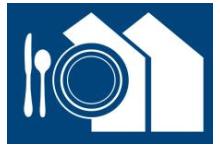Preble Street was founded as a neighborhood center for homeless and low-income people and provided basic services—meals, clothing, bathrooms, etc.—and linkage to resources for healthcare, mental health treatment, employment, etc.
In the 1990s Preble Street created a private-public partnership working to meet the immediate and long-term needs of homeless and low-income people, consolidating soup kitchens, food pantry, health clinic, day shelter, and social services in a model that ... Read More
Preble Street was founded as a neighborhood center for homeless and low-income people and provided basic services—meals, clothing, bathrooms, etc.—and linkage to resources for healthcare, mental health treatment, employment, etc.
In the 1990s Preble Street created a private-public partnership working to meet the immediate and long-term needs of homeless and low-income people, consolidating soup kitchens, food pantry, health clinic, day shelter, and social services in a model that was replicated in 1996 at the Teen Center and later expanded to include an overnight shelter for homeless youth.
In 2005, Preble Street opened Maine’s first permanent low-barrier supportive housing for chronically homeless adults followed by a center for homeless women with permanent housing, and shelter.
In 2009, Preble Street launched the Maine Hunger Initiative, promoting best practices food work and policies to end hunger, and since 2011 has provided housing support services for veterans in Maine.
In 2013, Teen Services expanded to include two new programs—and Anti-Trafficking Coalition, supporting victims of human trafficking, and First Place, allowing youth an opportunity to establish independent living.
Preble Street is the hub of services in northern New England, providing solution-centered services throughout Maine through creative collaboration and advocacy to meet the needs of our most vulnerable neighbors 24/365. Programs include:
The Preble Street mission is to provide accessible barrier-free services to empower people experiencing problems with homeless, housing, hunger, and poverty and to advocate for solutions to those problems. Its range of programs that meet urgent needs, create solutions, and low-income people to improve the lives of homeless and low-income people throughout Maine include:
Resource Center
Drop-In: Offering 500 adults a day with essential services—e.g. phone, mail, showers, outreach, support, and resources, e.g. housing, healthcare, employment, and mental health services, to help them move beyond homelessness
Community Casework: Ensuring residential stability for formerly homeless tenants in community housing
Clinical Intervention Program
Supporting housing and improved outcomes for homeless people struggling with mental illness or substance abuse.
Teen Services
Available 24/365 to homeless youth ages 12 to 21.
Teen Center: Offers basic needs—e.g. meals, showers, outreach, case managment, and connection to healthcare, mental health, substance abuse, and educational/vocational resources.
Joe Kreisler Teen Shelter: Emergency overnight shelter for 24 youth
Anti-Trafficking Coalition: Preventing and responding to human trafficking in southern Maine
Transitional Living Program: Supportive housing for teens ready to establish independent living
Food Programs
Soup Kitchens: 3 soup kitchens serving 570,000 nutritious meals a year
Food Pantry: Distributing emergency groceries to 140 families a week.
Maine Hunger Initiative: Strengthening Maine’s emergency food system, helping community food providers introduce effective practices, developing public/private partnerships in 9 of Maine’s 16 counties to provide 45,000 summer meals to children living in poverty, and promoting state and national policy to end hunger.
Florence House
Permanent Apartments & Safe Haven: 25 efficiency apartments and 15 semi-private units with support services to assist tenants developing skills to maintain housing.
Emergency Shelter: Safety, basic services, support, and housing assistance for 25 homeless women.
Logan Place
30 efficiency units with support services to assist tenants to develop skills to maintain permanent housing.
Veterans Housing Services
Preventing homelessness and ensuring residential stability for veterans throughout Maine from offices in Portland, Lewiston, and Bangor.
Advocacy
Homeless Voices for Justice: Advocating on an individual and systems basis with and for people who struggle with homelessness, poverty, and oppression statewide.
Hide Full Text